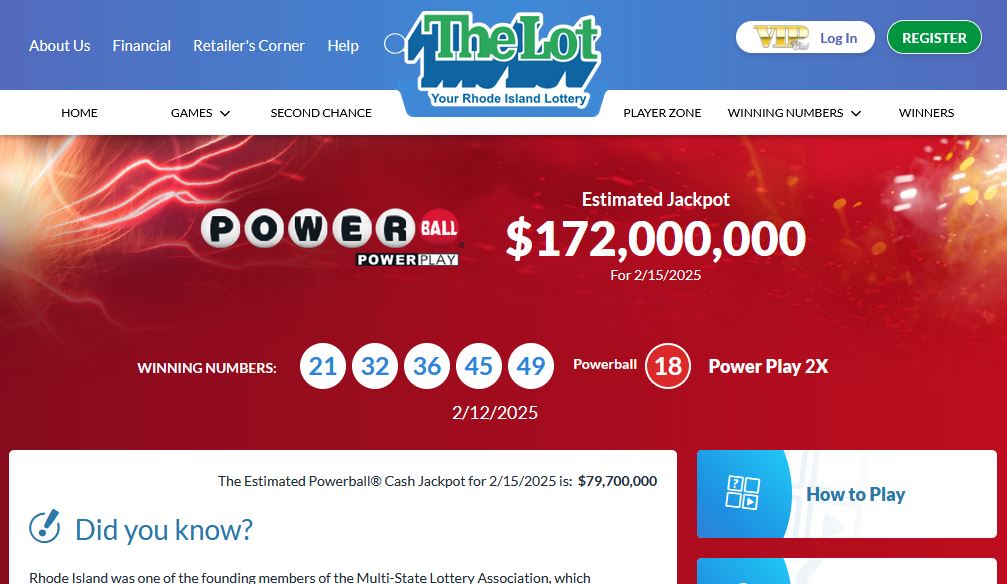Fraudulent promotion of government lotteries
Introduction
It is, at the least, distasteful that the government offers a product, the lottery, which is harmful to its citizens. Although it is gross, regressive and exploitative, I can accept the argument that lottery players, as demonstrated by their revealed preferences, may be exchanging money for the entertainment and ephemeral hope that a lottery ticket provides. But it is offensive that misleading and, arguably fraudulent, advertising is used to promote the lottery. If the government offers a lottery, it should be honest about the prizes. Currently, it is not. Hundreds of millions of dollars would be diverted from lottery ticket sales if the lottery were advertised honestly.
At least two very popular lotteries (MegaMillions and Powerball) prominently advertise a “Jackpot” prize. The amount of this jackpot is the sum of payments over a number of years (currently 29 years). Consequently, the present value of the “Jackpot” is a function of the payout time and a discount rate. The current amounts can be seen here. A recent example (below) advertised a “jackpot” of $172,000,000 or a lump sum alternative of $79,700,000.

Multiple graphic design techniques are used to encourage the viewer to focus on the “Jackpot” and not notice the cash alternative. Its font is three times the size of the note mentioning the cash alternative. It is near the top of the page. It is depicted in high contrast and bold colors. The “Jackpot” graphic is presented as a white font on a dark background so that reading it first makes it more difficult to read the lower contrast cash alternative.
Billboards display the “Jackpot” value and not the cash value. The convention of advertising a “Jackpot” which has only an accounting relationship to the actual prize seems to have become accepted practice rather than being called out as outrageous.
Harm
Why quibble over this when everyone must already realize that the odds of winning are so infinitesimal? Lottery players’ behavior says otherwise. More lottery tickets are sold when the jackpot is larger (The Wizard of Odds asserts that "there is an exponential relationship between jackpot and ticket sales, up to a point.") But, regardless of their quantitative understanding of the odds, lottery players act on some sense of expected value.
A recent example of the harm done by the promotion of gambling is described in ‘I lost 10 years of my life’: How UK Betting Giant’s Unlawful Marketing Kept Suicidal Gambler Hooked. While the intensive analysis and marketing by the gambling operator described in the article is more egregious than that employed by US lottery promoters, the principles are the same.
Solution
Lotteries should be advertised honestly and without any deceptive financial chicanery. The headline jackpot number should be the cash amount that can be chosen by a winner as a lump sum. If other payout options are available, they should not be mentioned prominently and certainly not with the designation “Jackpot”.
Two strategies to achieve this are proposed:
- Raising awareness via traditional channels such as blogs, videos, news organizations and other media.
- A law firm filing class action lawsuits against:
- State governments that participate in and market lotteries and
- Retailers who sell lottery tickets. For example, CVS and Walmart.
Raising awareness
Ideally (and optimistically), directing enough attention to this problem will convince the offerors of lottery tickets to market them more honestly.
Legal strategy
The facts of the lottery promotion deception are clear, potential defendants are numerous and have deep pockets, and the damages are enormous and reasonably straightforward to calculate. There should be many lawyers interested in pursuing a class action against the state governments and retailers who promote and benefit from the misleading marketing of lottery tickets.
Class action lawsuits are primarily governed by Federal Rules of Civil Procedure Rule 23. A lawsuit representing lottery players who have been harmed by the lotteries’ fraudulent advertising meets the criteria in Rule 23 of:
- Numerosity (class is so large that individual plaintiffs joining are impractical),
- Commonality (questions of law are common to the class),
- Typicality (claims of the representative plaintiffs are typical of the claims of the class), and
- Adequacy (the representative plaintiffs adequately protect the interests of the class).
Additionally (from Rule 23(b)):
- Common issues predominate over individual issues.
- A class action is the superior method for resolving the case.
- Separate actions by individual plaintiffs might create inconsistent results; a defendant’s limited assets need to be distributed fairly among class members
Conclusion
It should be self-evident that the government should not seek to use misleading techniques to the detriment of its citizens. Its promotion of lotteries is a clear example of this and should be stopped. There is a substantial financial incentive available to lawyers seeking to persuade the government to stop this practice.
